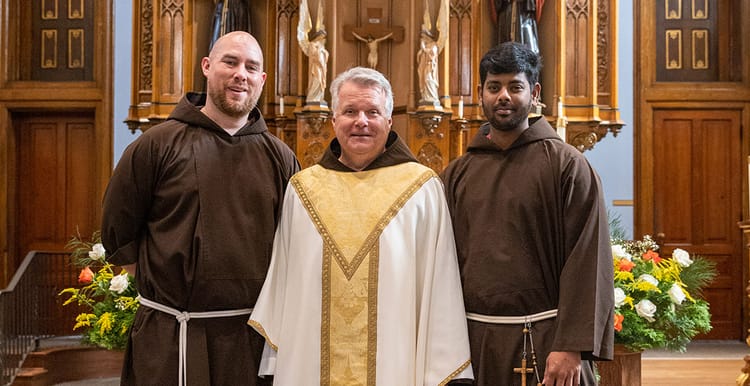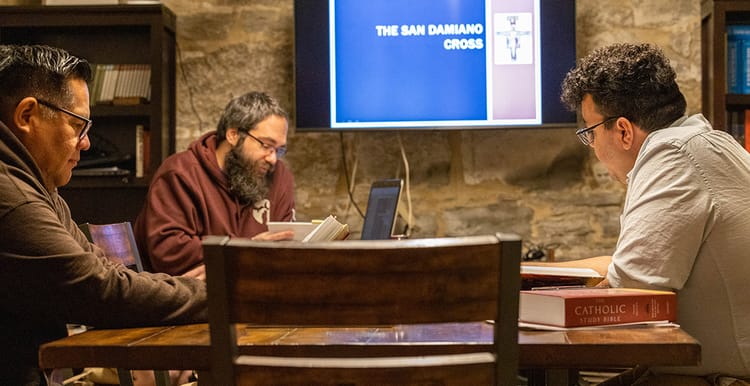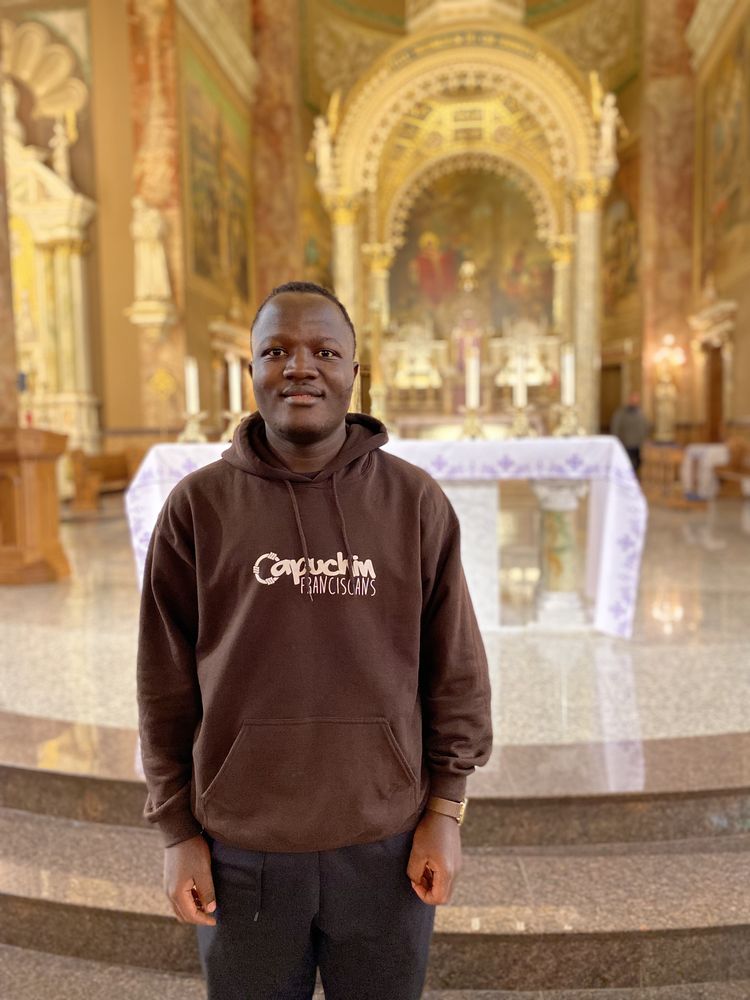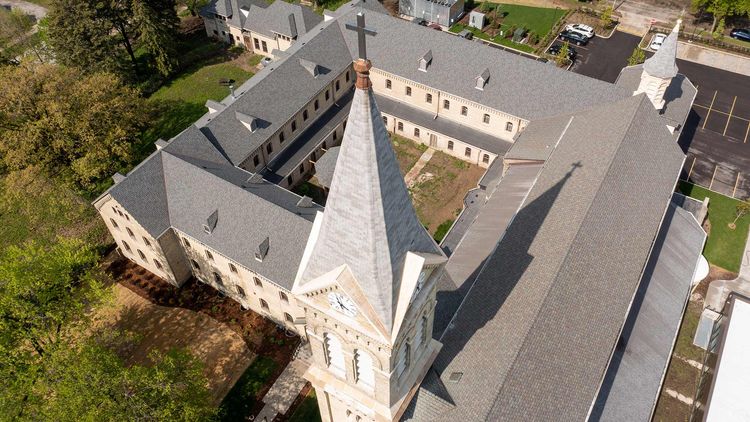Welcome to Novitiate
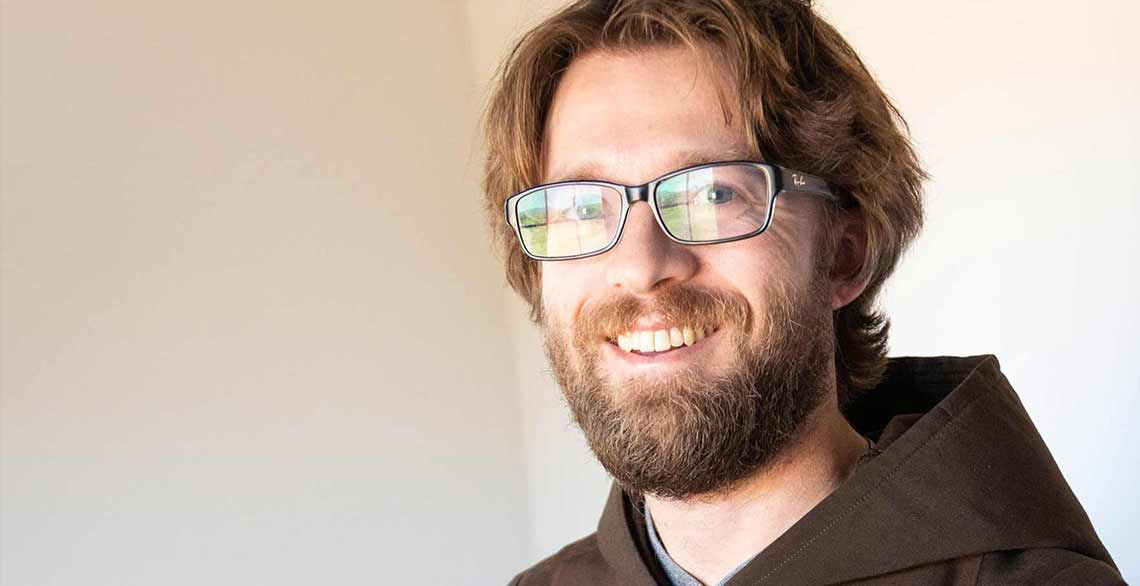
It’s just after 1 p.m. on a Wednesday, and I’m in Santa Barbara.
Old Mission Santa Barbara, to be exact. With the OFMs. Learning about the history of the Franciscans (and not just the Capuchin Franciscans).
Welcome to my novitiate.
Before I stepped aboard the plane that brought me to Southern California last July, I’d heard what I might fairly describe as the "horror stories" from yesteryear’s novitiate. "Back in my day," as I’d hear some older friars tell it -- which meant back when Bob Dylan hadn’t gone electric, John F. Kennedy was still giving the State of the Union and when somebody in Russia wanted to put missiles somewhere in the Caribbean -- back in those days, the novitiate was something else.
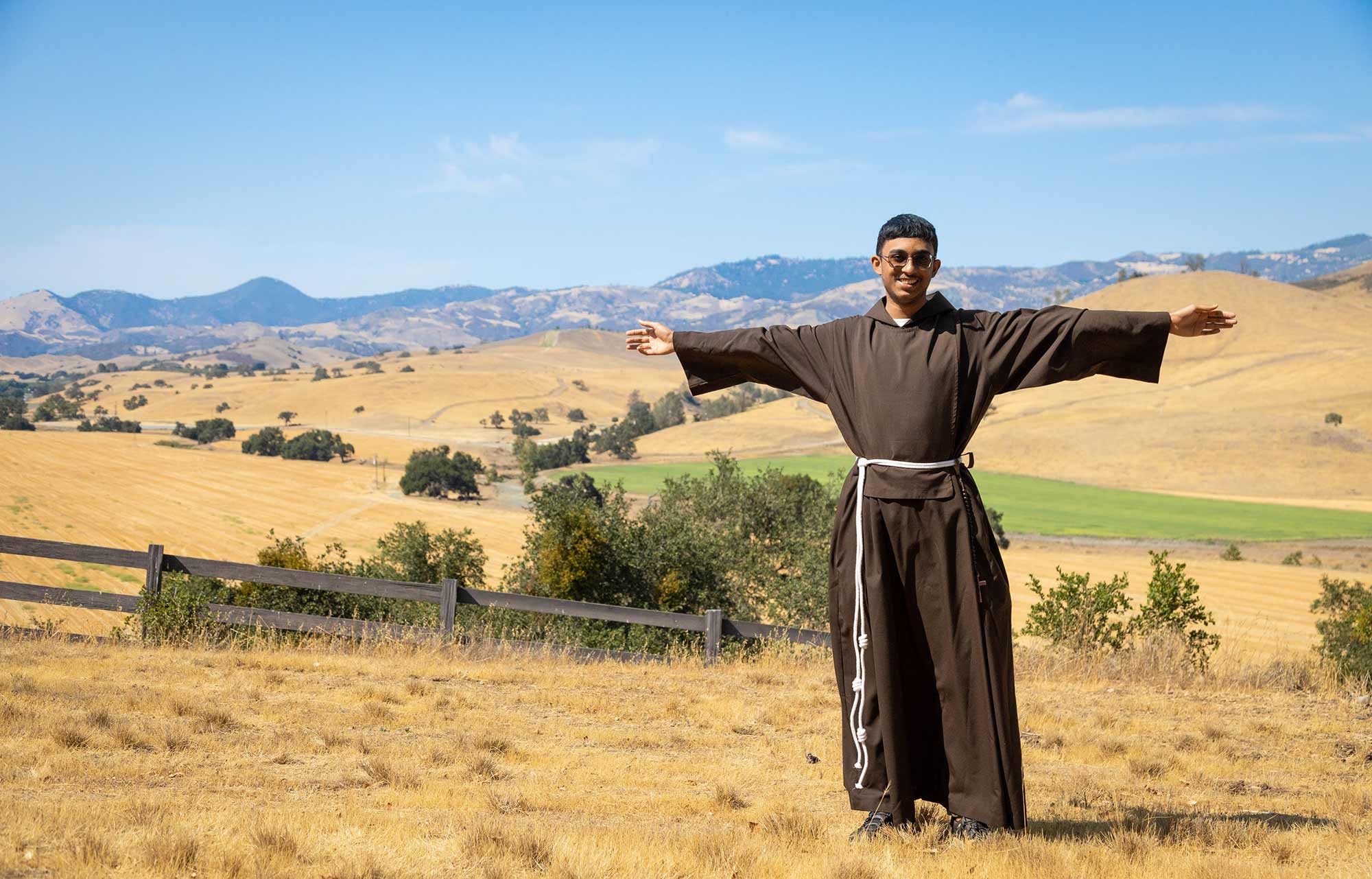
The mail that novices both received and sent underwent a scrupulous screening process. Novices knelt and kissed the ground when entering the chapel, and they never dared dream of setting foot outside the monastery grounds. And the Capuchin newcomers, on their arrival at St. Bonaventure, might be happy to get their new habits and oversized rosaries -- but were aghast to receive a certain something else that older friars had conveniently never told them about.
(A would-be Capuchin’s novitiate could end as soon as it had begun, so I’ve been told, after he’d been unceremoniously apprised of "the discipline.")
Yes, we’ve apparently gone "soft." I’ve dealt with none of that. The fact that I’m a 50-minute car ride away from my novice master’s office, in what’s technically another religious order’s own novitiate facility -- and using a Hewlett Packard, of all things, to punch out this essay -- should be proof enough of that.
I’ve been in discernment with the Capuchins for a number of years now, and one of those things that seems to have come up rather regularly in discussion with other discerners is the haranguing question: "Why isn’t everything the way it used to be?" From conversations about the habit and corporate fasting to the definition of poverty and the place of choral office in the lives of friars -- to name just a few of those "hot-button" topics that tends to rile up any friar, one way or the other -- there seems always to be some level of hand-wringing on the part of at least some of us about "how we should look" as we do whatever it is our vocation is meant to accomplish.
If I’ve done any growing up over the course of all those years of discernment, it’s been to stop getting too hung up on just those sorts of questions. But if I know anything about religious life, there’s a friar or a novice or a young aspirant somewhere right now who’s wrestling with just those sorts of quandaries. And that’s OK; we’d be less as a community if we didn’t spend a little time wrestling with them.
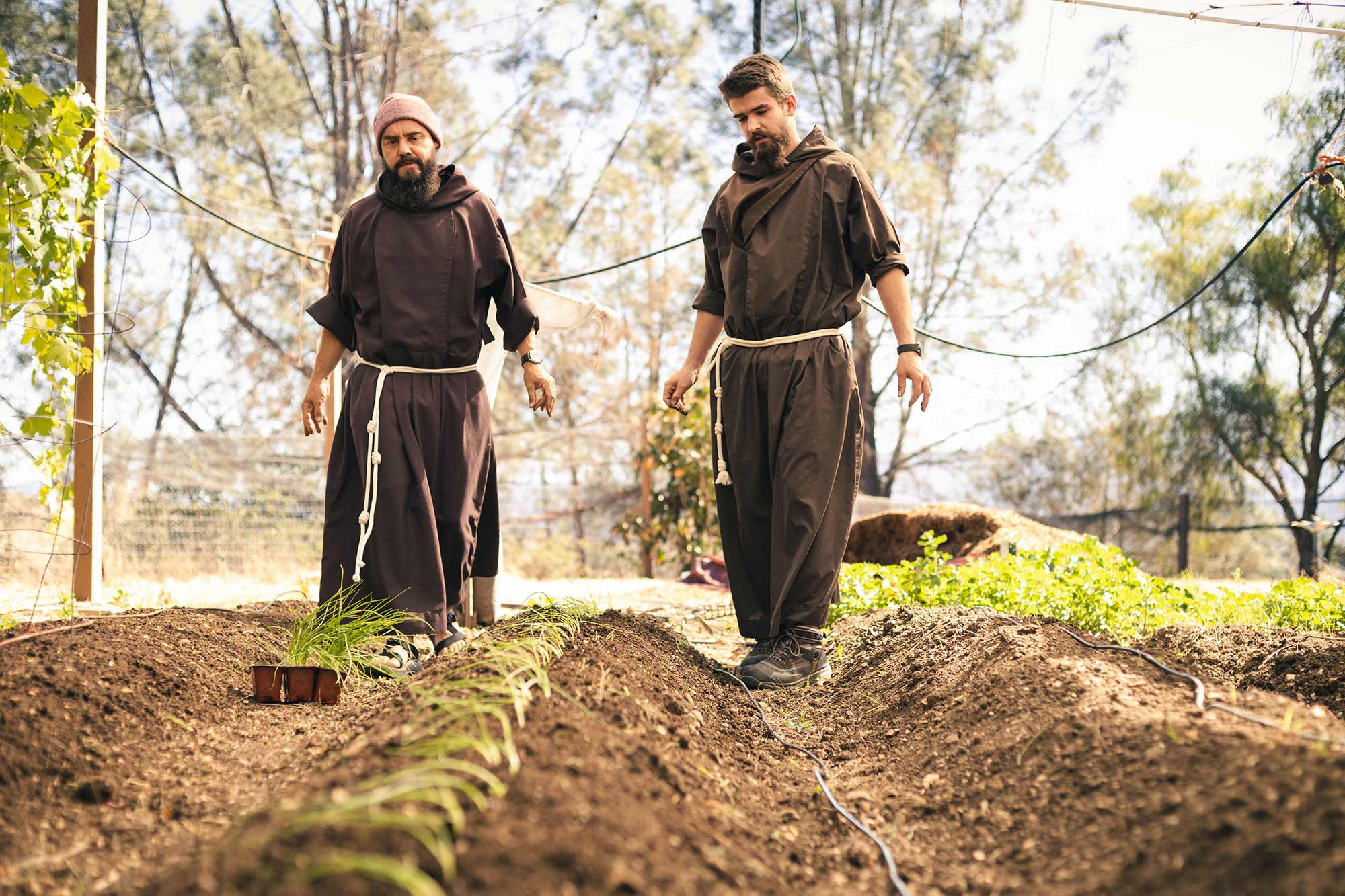
I guess if there’s something my experience in the novitiate has taught me, it’s that while some things have changed since the 1960s, something very integral to the Capuchin identity, and even to the Capuchin novitiate, hasn’t. Perpetually habited or not there’s something deeply spiritually transforming that a year as a novice, in any environment, at any time and in any place, can bring about in a discerner. Simply put, there’s an opportunity here to set aside one’s own ego that, frankly, makes today’s novitiate as potentially spiritually enriching as that of the Elvis Presley era.
What do I mean? Let me offer a quick perspective. Before I arrived in formation, I’d spent the better part of a decade working in the professional world. I’d been a writer at newspapers across Wisconsin, and then worked as a copy editor at a pair of magazines. I’d loved my job and loved my work -- and, perhaps more than anything else, I’d loved the independent lifestyle that my work helped me to afford. I lived in my own apartment, drove my own car and spent my free time however I wanted.
And while my independence fostered some good qualities in me, there was still something I was rather unprepared to really and actually deal with once the proverbial doors of the novitiate closed behind me: my inordinate attachment to myself. Perhaps I’m sounding a bit old-fashioned here. But there’s something to be said, I think, for the ability for a person to experience something akin to what some might call a "death to self." I’m just not sure that experiencing it requires as many of the bells and whistles that accompanied an older variety of the novitiate.
At the risk of sounding a bit melodramatic, I can say that the mere experience of dropping out of my old career and losing all my other old habits has wrought a sort of death-like experience in myself.
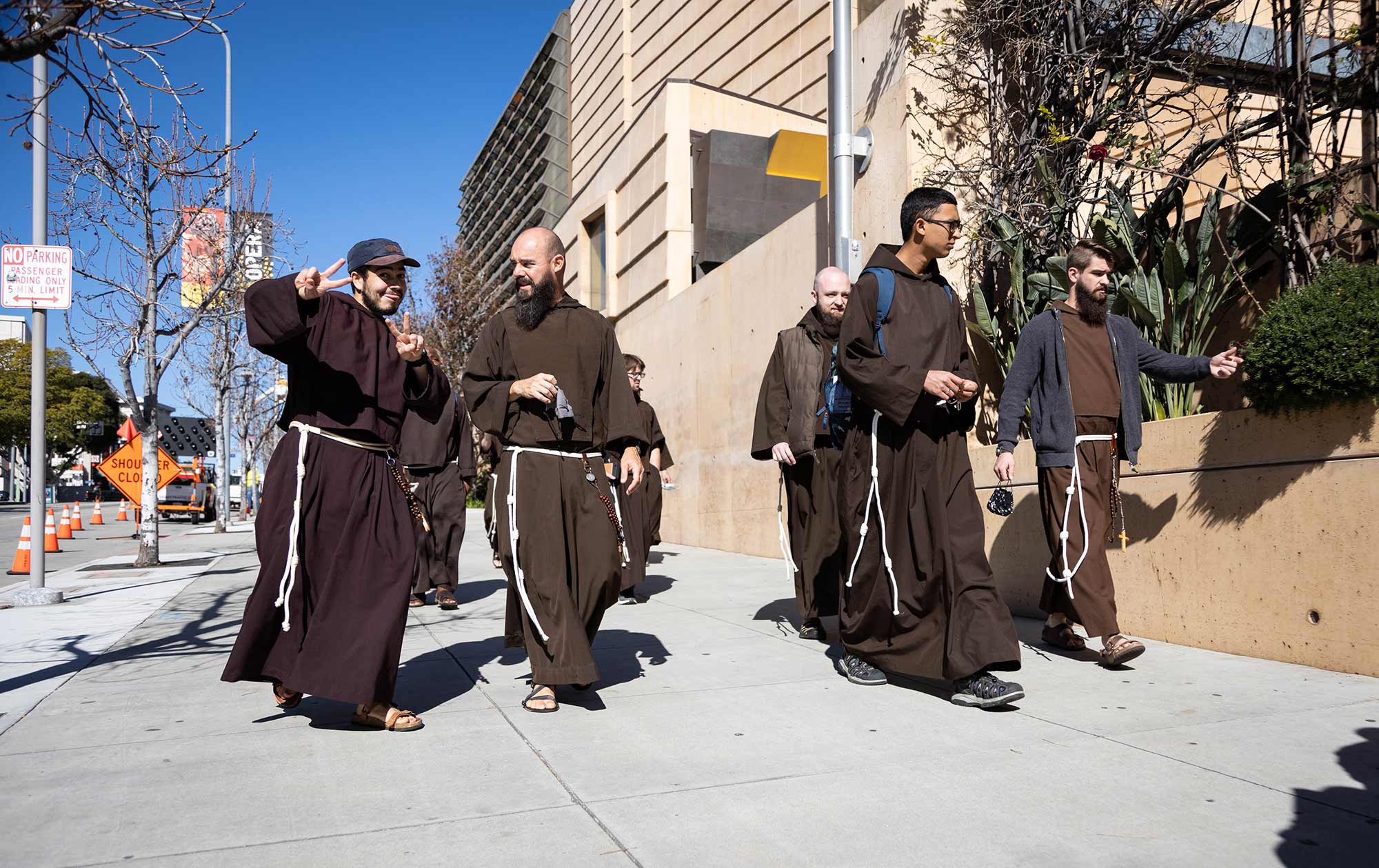
For men and women of my generation, there’s something downright embarrassing about having to borrow someone else’s car keys; I endure that feeling of dependence every time I have to run out for a gallon of milk. It may be nice to know that I have a room at a friary somewhere; but, if I’m being honest, it was really nice when I knew that I’d bought and paid for my own apartment with money I’d made working. My living arrangement now, while perhaps not as "poor" as St. Francis might have demanded, has at least produced in me the effect of having to depend on someone else to provide for me what I’d once provided for myself. And there’s a real humility to be gained in that.
No, I may not be confined to a cloister or told to kiss the floor when I walk into chapel. I may not have to wear my habit all the time, chant my prayers in Latin or practice the discipline. But the novitiate (and my postulancy before it) really has humbled me. And, hopefully, I’m starting to experience not just a "death to self," which I think I can say I’ve experienced a few times since entering Capuchin formation, but a complementary form of interior resurrection to a new and more deeply formed version of myself.
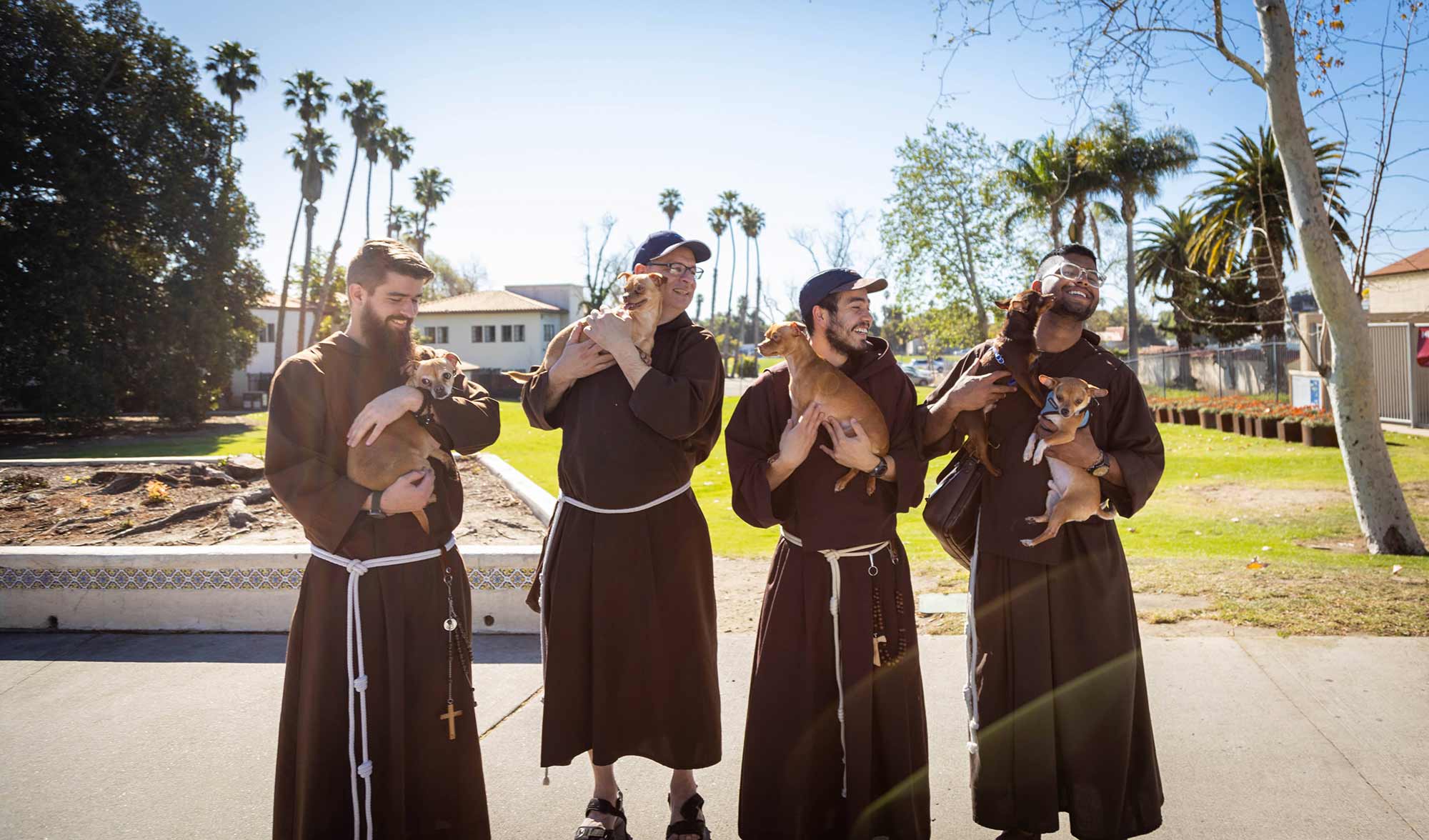
What will this version of myself look like? I hope I’ll still retain more than just a modicum of independent thought; I anticipate keeping the personality I spent so many years of my life forming and growing into. But I’ll also be (hopefully) a humbler, more down-to-earth human with a capacity for kindness and thoughtfulness that’s been shaped by the experience of having had to really lean on someone else to meet my daily needs. And if I ever attain to this level of my own humanity (I’m still working on it), I’ll have my novitiate -- my very modern novitiate -- to thank for it.
